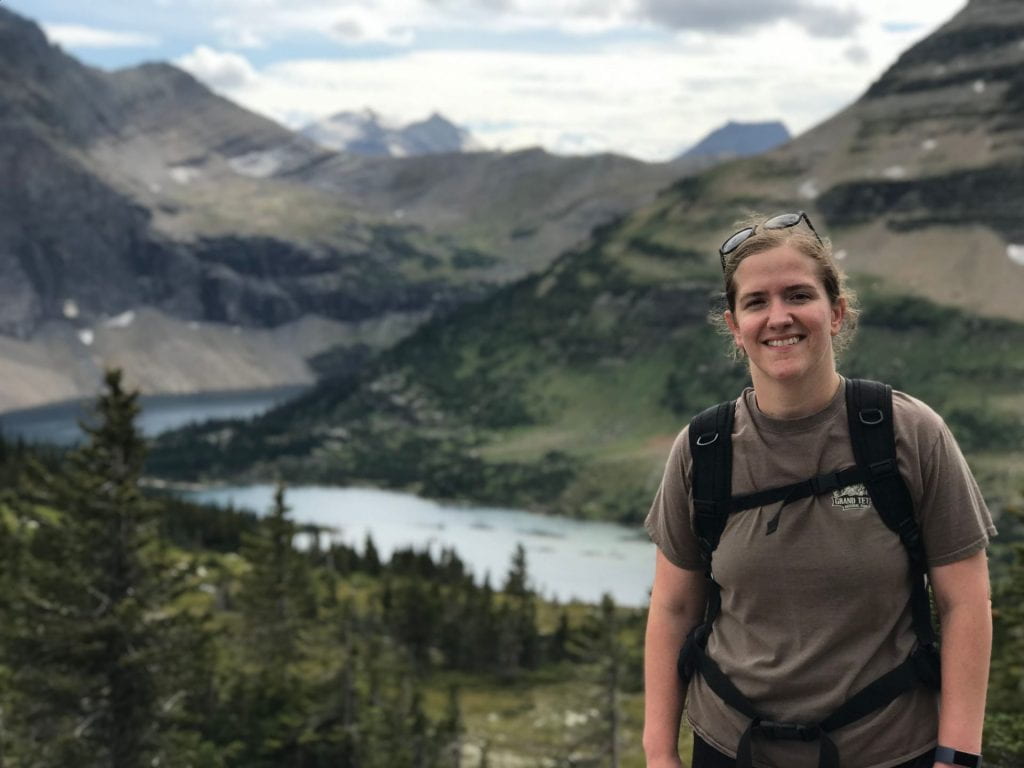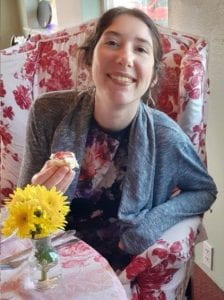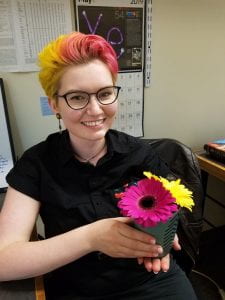UO Chemistry and Biochemistry graduate students Emma Tran and Grace Lindquist have been named as the department’s 2021-22 John Keana Fellows. Emma is in her fifth year of the chemistry doctoral program, working in the Richmond Lab. Grace is a fourth-year doctoral student and works in the Boettcher Lab.
The Keana Fellowship was established in 2017 in honor of Professor Emeritus John Keana, and provides annual fellowship awards to graduate students studying in the Department of Chemistry and Biochemistry at the University of Oregon. The award may be used to assist with defraying the academic costs associated with attending the university such as tuition, fees, books, miscellaneous supplies, research and living expenses.
We asked Emma and Grace to tell us a little about themselves and their science.

Emma Tran
I was born in Vietnam, but grew up mainly in Las Vegas, Nevada. There, I completed my Bachelors of Science degree in Chemistry with a minor in Mathematical Sciences. While juggling coursework, waitressing, and tutoring, I only got to dabble briefly in chemistry research. It wasn’t until I started graduate school at the University of Oregon that I gained more experience and insight into scientific research. As I progressed through my graduate school career, my interest in research grew as I gained a deeper appreciation for science communication, chemical education, mentorship, and the efforts toward improving the representation of underrepresented groups in science.
About her research
I am currently conducting research in Dr. Geraldine Richmond’s lab, investigating the interfacial phenomena of oil-in-water nanoemulsions. Through various experimental techniques such as pendant drop tensiometry, dynamic light scattering, and vibrational sum frequency scattering spectroscopy, I study the surface chemistry, behavior, and properties of biocompatible and environmentally friendly emulsifiers. The insight and fundamental knowledge gained from my research aims to guide the rational design of tunable drug delivery systems and safer oil remediation methods.
Future plans
I am planning to defend and graduate with my PhD in Spring 2022, and currently exploring and considering several career trajectories, hoping to broaden my skill sets and research breadth. My long-term goal is to become a professor at a primarily undergraduate institution while establishing strong partnerships with neighboring national labs and/or industry collaborators.
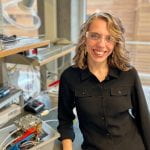
Grace Lindquist
I grew up in Detroit Lakes, Minnesota and attended the College of Saint Benedict and Saint John’s University in central Minnesota. At St. Ben’s I was a part of the FoCuS program which was aimed at increasing gender and racial diversity in STEM majors. I was on an accelerated course path and took every class with the same group of women, some of which are still my closest friends. Having a constant support network in chemistry really helped me succeed as a chemistry major and encourage me to pursue my PhD. As a grad student here at UO, I am heavily involved in outreach. I lead Mad Duck Science, a program that conducts science experiments with students from a local, under-funded middle school. I am also an outreach coordinator for Women in Graduate Science, where I help organize various activities throughout the community to encourage young girls to pursue degrees in STEM.
About her research
In the Boettcher lab I research anion exchange membrane water electrolysis. It is a growing technology that, with further development, has the potential to compete with current mature electrolyzer technologies. Water electrolysis is a carbon-emission-free process that produces hydrogen renewably, which is key to supporting the transition to a clean energy economy. I love my research because I work at the interface between fundamental and applied science. It’s very inspiring to get to see the direct impact my results have on improving renewable energy technology.
Future plans
I plan to pursue a postdoctoral position to expand my understanding of electrochemical energy technology, after which I hope to work in a position where I can maximally impact society through research, outreach, and science policy advocacy and development.
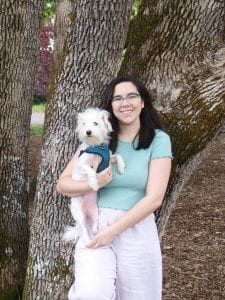 UO Chemistry graduate student Kalika Pai has been selected to receive a National Science Foundation Graduate Research Fellowship.
UO Chemistry graduate student Kalika Pai has been selected to receive a National Science Foundation Graduate Research Fellowship.


